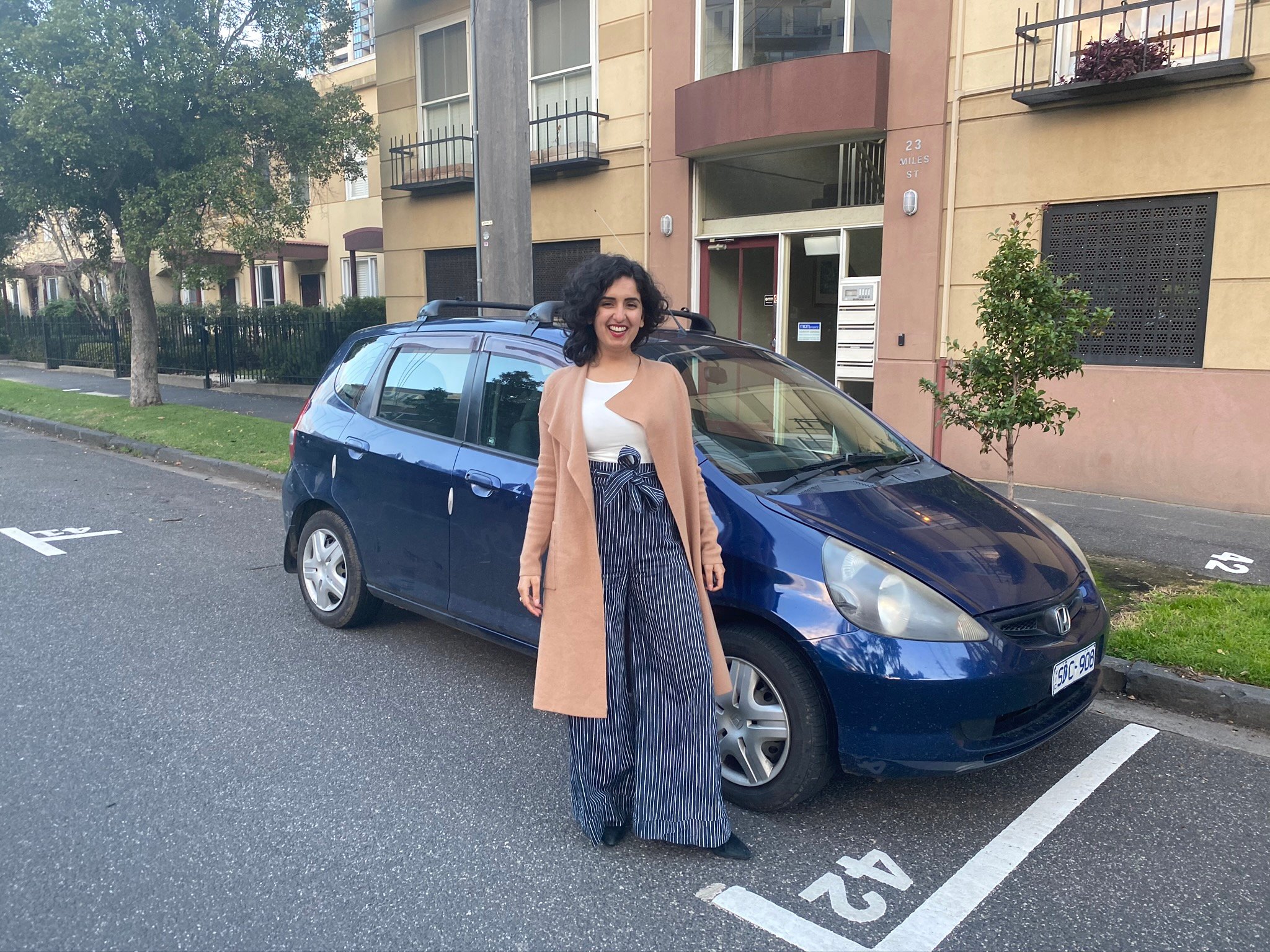Would you still own a car if it was cheaper yet more practical not to – if you could get around in cars you didn’t own?
A few years ago I was about to sell my little car that I’ve had since I turned 19. I figured I don’t drive much these days now that I live close to the town centre – roughly once a fortnight.
Driving isn’t a hobby for me, I’d much rather be in the passenger seat. The parking situation is becoming a hassle. Cars are a terrible investment from an ROI perspective. They just cost you money — parking, fuel, servicing, registration fees, and parking fines, and I’d rather invest in things that make me money or things I actually enjoy.
The costs of owning a car
I don’t have a fancy car – it’s a little Honda Jazz that I’ve called Jagga (short for Punjabi name Jagraj) that I bought for $4k when I was 19 – but on my calculations, owning and driving a car costs me around $4000+ a year (that’s a modest estimate — $900 rego, $1500 parking, $1500 fuel, $250 servicing etc).
However, owning and driving less often would cost around $2500. Not to mention the lost time driving around looking for free parking.
Then I came across Car Next Door, an Australian startup that lets you rent your car out to neighbours. As I don’t use mine much, I’m happy for other neighbours to use it to make their life more convenient.
I love being an early adopter to Aussie startups, so I signed up.
One year on here’s what happened:
I priced my car quite low as the reality is if I don’t need it, I’m happy for other neighbours to use it to make their life more convenient
My car was rented out 34 times and made $2,930.30 (44% availability). Nice, but nowhere near this guy from Melbourne who made $20,000 a year renting out his SUV.
Why own a car?
It’s now earned me more than it cost me to buy, and this whole experience got me thinking about why people own cars. Car ownership is about four things:
- Convenience — being able to get from A to B whenever you want. Also, those who live where there’s less public transport don’t have as much of a choice if they want to get to places quickly or at all in rural Australia (I’m originally from a small country town).
- Comfort — some people are more comfortable in a car than on a train/tram. You can openly have private conversation with Bluetooth in your car, it’s awkward on a train.
- Status/culture — people own nice expensive cars do so because of status and what it says about them to others. It’s part of their identity. It’s also embedded in our culture. And some people just “love going for long drives”.
- Luxury — this ties into status, but some people like nice white leather seats that heat up in winter.
I realised I mainly own a car for 1 and 2, and that if 3 or 4 mattered to me I would have upgraded long ago yet I keep my old car precisely because it still works and gets me to where I need to go.
One time I forgot to block my car calendar on Car Next Door and needed it but it was booked by someone else. I went to cancel the booking, but instead the person renting offered to drop me to my destination since it happened to be on the way to their destination too.
Sitting in the backseat I realised the irony — I was being driven to my destination by a stranger and being paid yet it was more convenient for both of us.
I recently updated my car bio to reflect his personality too, which could be the reason my bookings have doubled this last month.
“Hi I’m Jagga, short for Jagraj. I’m super easy (to drive), more spacious than other seemingly bigger cars and I have a stick — you’ll need to put me in the right gear to turn me on. I get around A LOT. Did I mention all the profits I make by getting around go to charity? I’m practically the guy you’ve been looking for on Tinder, you’ve just been on the wrong platform baby. I’m in an open relationship, so let’s go for a ride.”
The future is closing in
A conversation I had with someone in the industry got me thinking about the future of transport and what that means for Australia in ways that I hadn’t before.
When I’m not taking public transport I opt for ridesharing. I don’t love Uber for various reasons, I’d much rather use Shebah (the Australian rideshare platform for women).
Convenience, in the long run, will trump status and change our culture — especially when it makes economic sense too.
Once upon a time, a lot more people loved going on horse rides. Now it’s a hobby for a small group of people; I think the same is likely to happen with car ownership.
There will still always be people who like owning nice luxury cars, but it’ll be about the same number of people who go horse riding on weekends.
- Daizy Maan is startup program manager at Deakin University and hosts of the podcast The Daizy Project, talking to entrepreneurs, change-makers and leaders, especially women of colour.




















Trending
Daily startup news and insights, delivered to your inbox.